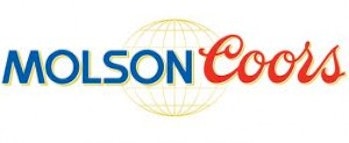A few weeks ago, Lance Helfert and Paul Orfalea’s West Coast Asset Management filed its 13F Form at the U.S. Securities and Exchange Commission, disclosing its long equity positions as of the end of the fourth quarter of 2013. We have found that the most popular small cap stocks among hedge funds outperformed the market by 18 percentage points even though we started measuring the returns a couple of weeks after 13Fs have been made public (See more details about our strategy here). It can also be productive to treat individual 13Fs as free recommendations from fund managers – not necessarily to be followed, but to be considered briefly and then researched further if they seem appealing.
Below, I will look into West Coast’s new latest moves –the fund did not initiate any new positions and only closed out one, however, several sales were reported. This consumer-goods-oriented fund holds a reduced equity portfolio, which only reaches $66.5 million. According to the fund itself, West Coast sports a “unique entrepreneurial style [that] brings a business owner’s sense of focus, opportunity and involvement to the art of investing.” Lance Helfert and Paul Orfalea’s operation also prides itself on various green initiatives, including a Platinum LEED-certified headquarters.
Over Q4, the fund did not acquire any new stocks, nor has it increased its stakes in any of its holdings. However, it sold a portion of every one of its 16 different positions. Thus, in this article I will look into some of these transactions, and its main apparent reasons.
West Coast has sold out its stake in iShares Silver Trust (ETF) (NYSEARCA:SLV), previously holding 22,000 shares (worth about $500,000), which comprised about 0.7% of its equity portfolio at the end of the fourth quarter. However, we tend to focus on publicly traded companies, over bonds and ETFs.
In this last category, Helfert and Orfalea have reduced its exposure to several companies. I will present the ones in which the fund holds the largest stakes. By the end of Q3, West Coast’s largest bets were placed on Molson Coors Brewing Company (NYSE:TAP), a $10 billion market cap holding company that produces, manufactures, markets and sells beer and some other beverages. Despite the fact that the company boasts above average margins, pays out a dividend yield of approximately 2.6% and holds decent growth projections, the sale makes sense; the stock gained about 11% over Q4, making it a good moment to sell some stock without the total value of the investment decreasing. Over this time period, West Coast reduced its bets in the company by 5%, to 145,153 shares, worth almost $8 million.
The second-runner is the personal care giant Johnson & Johnson (NYSE:JNJ). Over Q4, the fund reduced its position in the company, getting rid of 6% of its shares. Following these moves, the fund owns 77,228 shares, valued at roughly $7 million. Over the quarter, the stock had inched up about 6%, providing an attractive opportunity for West Coast. The move looks quite smart, given that the price has fallen slightly (about 3%) since then. Same as in the previous case, this moves only look like a way to make money out of existing holdings, rather than like a bearish signal from the fund, especially as its stakes in Johnson & Johnson (NYSE:JNJ) are still quite high. This is quite understandable, given the company’s competitive position, strong brand name, interesting return on equity (19.3%) and a 2.86% dividend yield.
Kimberly Clark Corp (NYSE:KMB) – one of the leading players in the household and personal products industry- also has been downgraded in the West Coast’s equity portfolio. Despite the company’s industry leading return on equity (43.5%), and cheap valuation, the fund decided to sell 11% of its participation in the company, to 61,496 shares, worth about $6.7 million. The stock had gained about 10% over Q4, making the sale more alluring. Still, its third most valuable holding in the fund´s portfolio, its bets are certainly smaller. With limited growth prospects –mainly due to declining birth rates and the instability brought by the company’s wide international exposure, I wouldn’t be surprised to see the fund continuing to reduce this position as time goes on.
The last case I want to review is that of The Clorox Co (NYSE:CLX), manufacturer and marketer of consumer products with a market cap of more than $11 billion. Just like Jim Simons, and Ray Dalio, Lance Helfert and Paul Orfalea decided to cut their exposure to it. Over Q4, they sold 6% of their shares in the open market, which seems to have been a good decision, as the stock price is down about 3% since then. The fund now holds 62,564 shares, valued at approximately $5.8 million. Despite a strong competitive position, brand strength and a slim cost structure, the company’s long-term EPS growth prospects are not so promising. As institutional investors retreat from these stocks, should you too?
Disclosure: Javier Hasse holds no position in any stocks mentioned
Recommended Reading:
Paul Singer’s Elliott Management Raises Stake in Compuware Corporation (CPWR)






